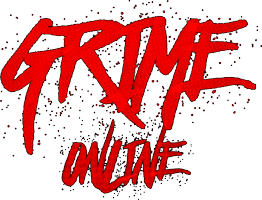Drake’s been out raving, and this comedown sounds rough.
Just nine months after he released his sixth album, the chart-topping rapper is back with his seventh, “Honestly, Nevermind.” While its smeary gothic cover art looks like a Foos Gone Wild meme, this surprise-release 14-track album is an unusual experiment for a genre-hopping superstar. It’s almost entirely a front-to-back club record of deep house music, shot through with his typical malaise.
It’s the first COVID-era dance album that actually sounds like catching a superflu at a warehouse party. It’ll likely be the most divisive album of his career.
“Honestly, Nevermind” reunites him with longtime collaborators Noah “40” Shebib, Oliver El-Khatib, engineer Noel Cadastre and South African house-music innovator Black Coffee.
Some initial impressions:
1. This is his tears in the club record.
Yes, every Drake record is about being rich and sad in the VIP at 4 a.m. But “Honestly, Nevermind” sounds like he’s wobbly on ketamine at Panorama Bar in Berlin. Black Coffee’s influence is strong, all relentless four-on-the-floors and filter-scrubbed synth chords. Everything hovers around 125 BPM save for the rare, arresting moments of hard techno on “Sticky,” Jersey club on “Currents” and the Mr. Fingers / Frankie Knuckles-style Chicago house stabs of “Massive.”
2. So is he sincere about house music?
Drake is pop music’s most famous genre burglar — from U.K. grime to drill to Afrobeats and Jamaican dub patois. It’s such a foundational part of his whole deal that it’s hard to even knock him for it (plus the boost to a then-emerging artist like Wizkid was real and huge). But this is the first time he’s dug root-and-branch into a decades-old genre he’d only glanced at before.
Music
From intimate clubs to picturesque outdoor theaters to state-of-the-art arenas and stadiums, there’s no better place to see live music than SoCal.
3. It’s pretty miserable, even by Drake standards.
The recent disco explosion in pop brought effervescence and bounce to the top 40. So it’s a definite contrarian choice for Drake to make the album’s first proper track a downtempo deep-house cut where the main hook is minute after minute of mournful vocoder chants and lyrics like “Time isn’t healing / Time is revealing / How are you feeling / You don’t feel nothing.” But there is a sweetly memorializing sample of the late Virgil Abloh (a fellow house music head) on “Sticky.”
4. Whatever this breakup is, it’s got him wrecked.
Drake has always been strikingly merciless in his breakup tracks, but whomever “Texts Go Green” is about, he’s coming after them with extra-potent venom. “If I was in your shoes I would hate myself,” he sings. “For some reason, I believed in you.”
5. He wrote at least one song after Young Thug’s indictment.
After a dozen tracks of disassociated raving, Drake finally gets his blood pressure up with “Jimmy Cooks,” an old-school Drake rap song with a guest verse from 21 Savage — the only billed cameo on the album’s tracklist. The line “Hoes say I’m suave, but I can’t get RICO’d” lands just as Young Thug and Gunna went to jail on conspiracy charges (Drake also says “Free Big Slime out the cage” on “Sticky”). After all that Lexapro-glazed warehouse music, “Honestly, Nevermind” goes out with a fury.
Your essential guide to the arts in L.A.
Get Carolina A. Miranda's weekly newsletter for what's happening, plus openings, critics' picks and more.
You may occasionally receive promotional content from the Los Angeles Times.
Follow Us
August Brown covers pop music, the music industry and nightlife policy at the Los Angeles Times.
Music
Subscribe for unlimited access
Follow Us

